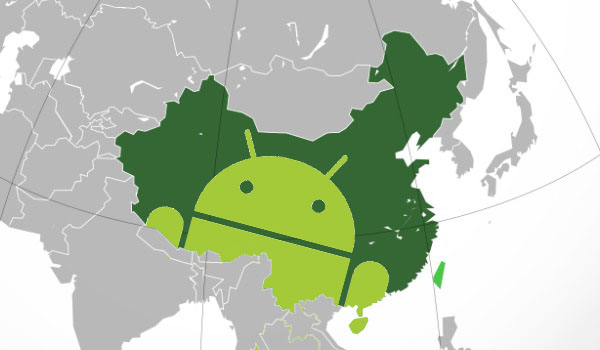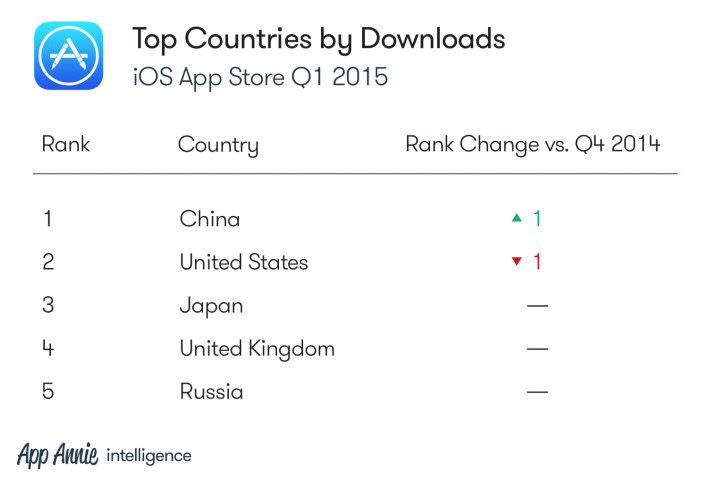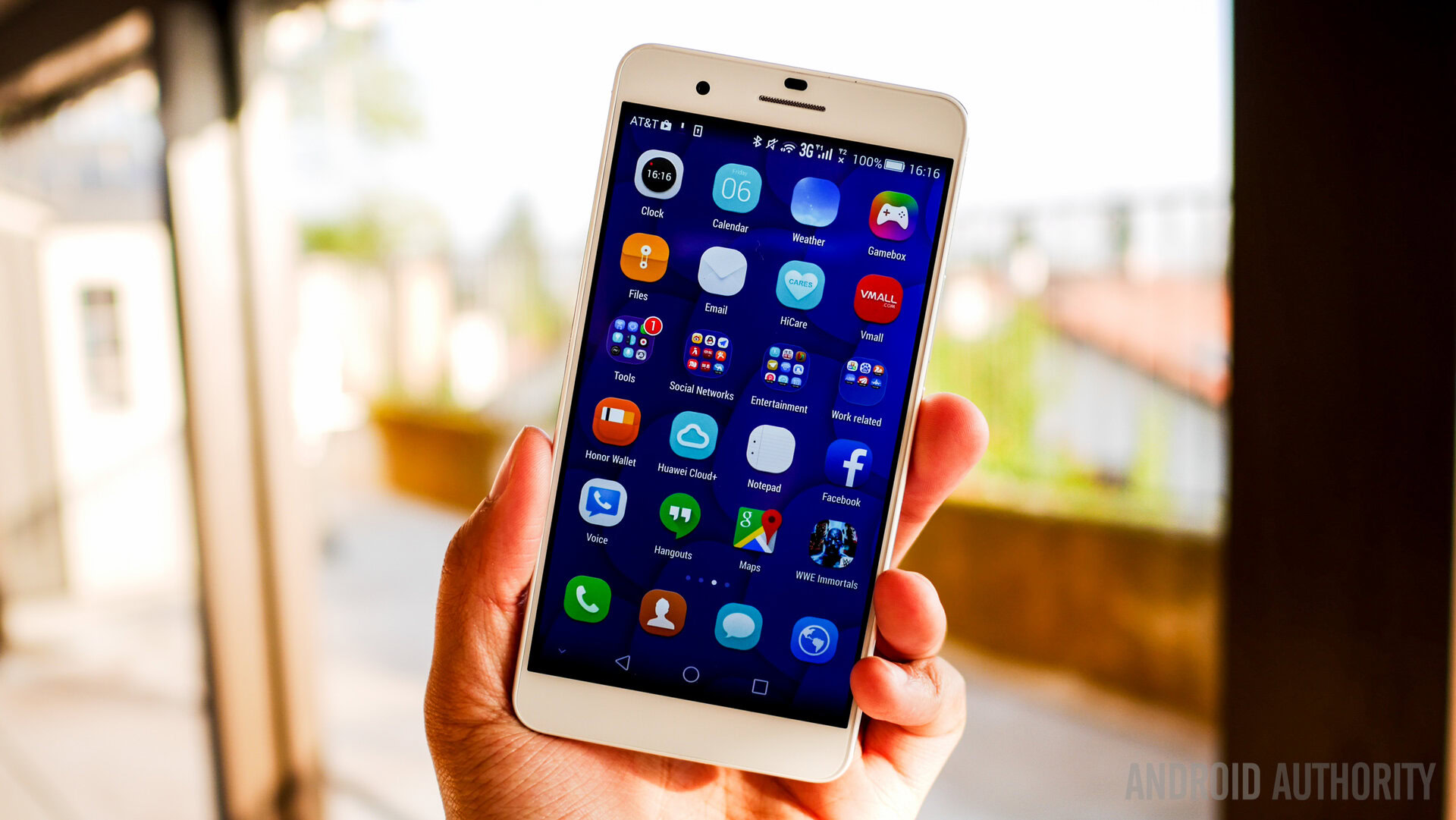Affiliate links on Android Authority may earn us a commission. Learn more.
Does Google need to return to China? It's complicated.

There are more than one billion mobile phone users in China, and somewhere over 40% of them are using smartphones. China became the world’s biggest smartphone market way back in 2011 or 2012, depending on which analysts you believe. It’s still growing. IDC says the 107.5 million smartphones shipped to China in the last quarter of 2014 represent 2% growth on the same quarter in 2013.
You know who’s doing really well in China? Apple.
IDC put Apple on a 12.3% market share in China for Q4, 2014, ahead of HUAWEI, Lenovo, and Samsung. Only Xiaomi had a larger share at 13.7%.
The iPhone 6 and iPhone 6 Plus are selling really well in China.
If we look at the App Annie Index Market Q1 2015 report we find that China is now Apple’s biggest market for iOS App Store downloads, ahead of the United States. In the revenue chart we still find that the U.S. is top, but China has climbed to third place ahead of the United Kingdom.

That’s a lot of people and a lot of revenue that Google is missing out on.
Where is Google?
Google launched search in China back in 2006 with results subject to censorship by the Chinese government. It was an uncomfortable and controversial agreement which collapsed in 2010 when Google stated it was no longer willing to continue censoring results. This was ostensibly a response to alleged Chinese government hacking, into, among other things, Gmail accounts of Chinese human rights activists.
Since then Google services have been blocked or hobbled in China. That includes Google’s Play Store. It’s unclear what, if any, talks are ongoing between Google and Chinese companies or the government itself. But the rows continue, most recently over Google’s decision not to recognize safety certificates of trust for Chinese websites, as reported by CNBC.
Sundar Pichai, Senior Vice President at Google, where he oversees Android, Chrome, and Google Apps, did comment on China briefly at MWC this year, suggesting that the search giant is working with local companies to bring the Play Store back to China, because there is clear demand due to the low quality of alternative app stores and the prevalence of malware. But no roadmap was revealed and it’s far from a sure thing.
The malware question
You can find some statistics in Google’s Android Security 2014 Year in Review report about the risk of potentially harmful apps (PHAs). The overall outlook for Android is good. Less than 1% of all Android devices had a PHA installed, and that drops to 0.15% for devices that only download from Google Play.
The vast majority of the malware reports about Android fail to advertise the fact that most of the malware is coming from third-party app stores in countries like China, where the Play Store isn’t dominant. You can see why people might want access to Google Play, just on security grounds.
Fears over malware and/or a poor user experience with third-party app stores could also be another reason behind the surge in Apple’s popularity in China. What choice do people have in Google’s absence?
A real Android experience
Many of us are daily users of Google’s services and have trouble imagining Android without it. There’s little doubt that Android is a less attractive prospect without Google. Imagine no Google Search, no Google Maps, no Gmail, and no Play Store.
They say absence makes the heart grow fonder, so Google could be welcomed back with open arms by ordinary Chinese people. That same App Annie report shows the biggest growth for Google Play in the app downloads chart has been in Brazil, India, Russia, and Mexico, now 2nd, 3rd, 4th, and 5th respectively, behind the U.S. in the top spot.

If the Play Store was operating in China who is to say it wouldn’t be the biggest market for app downloads? For a company like Google, so intent on increasing its user base, and working hard to tempt the online audience onto its services, China is a massive audience to lose. With over 640 million internet users, according to Internet Live Stats, China is by far the biggest audience out there. To give a comparison the U.S. is in second place and has around 280 million internet users.
How does it happen?
We’ve wondered before whether Google Play may be coming to China, but the truth is that we don’t know. It seems like a no-brainer for Google from a business perspective, and there would be obvious benefits for the Chinese people, but the situation between Google and the Chinese government is obviously complicated.
It seems unlikely that Chinese government policy is going to change in the immediate future. Realistically that means the original reasons Google pulled out are still valid. Five years ago German paper, Der Spiegel, asked Sergei Brin “Do you now fear that you will lose China, a huge potential future market?” and he said:
“If you adopt that point of view then you would agree to completely arbitrary limitations and distortion. If you take the point of view that you have to be friendly with the Chinese government and they can make arbitrary demands of you, then you can’t really run a business. I really don’t think that is a practicable way to proceed.”
It wasn’t really a business decision that took Google out of China. Is the fear of lost business enough to take it back? Has anything really changed?
Looking at this another way, Google doesn’t strictly need China. It’s not exactly struggling without a major presence there. But it’s very unusual to see business considerations take a back seat, and you can imagine there must be pressure from certain quarters to go back.